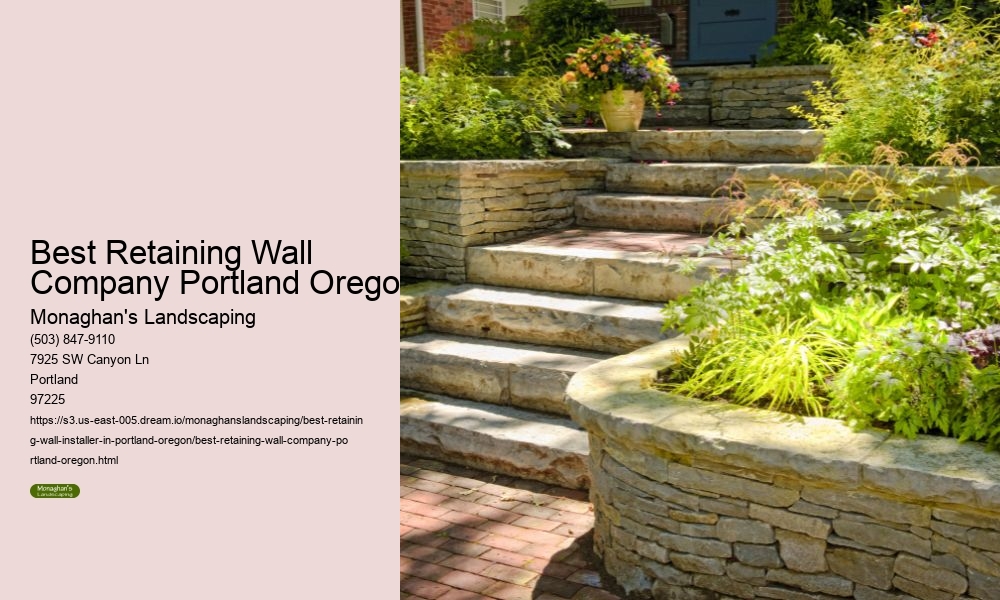

Choosing the Best Retaining Wall Company Portland Oregon means working with professionals who deliver both durability and design. Retaining walls not only stabilize soil but also enhance outdoor beauty, making them a functional and decorative investment.
Portland's natural slopes and heavy rainfall make retaining walls essential. The best companies understand how to integrate drainage solutions into wall construction, preventing water buildup that can weaken soil and compromise structural integrity.
A reliable company starts with a thorough site evaluation. Looking for the best retaining wall installer in Portland Oregon ? Monaghan’s Landscaping delivers expert retaining wall solutions that combine strength, durability, and design to protect your property and enhance curb appeal. Get reliable installation tailored to Portland’s unique landscape.. Sustainable Assessing soil type, slope, and drainage patterns ensures that retaining walls are built to last while also protecting nearby structures from potential erosion damage.
Professional retaining wall companies offer material versatility. From rugged natural stone to modern concrete blocks, each option provides unique aesthetic and structural benefits, giving homeowners the freedom to customize their projects.
The best companies emphasize craftsmanship.
Retaining walls improve more than stability-they create usable outdoor areas. Companies design terraces, patios, and raised garden beds, turning sloped yards into functional, enjoyable spaces for families and guests.
Attention to detail defines leading companies. They consider grading, drainage, and load distribution, ensuring each wall not only looks attractive but also delivers long-term structural reliability in Portland's variable climate.
A top retaining wall company prioritizes customer experience. From clear communication and accurate estimates to professional project management, they keep homeowners informed and confident throughout the construction process.
Retaining walls provide protection for homes and landscapes. By holding soil in place, they prevent erosion, safeguard foundations, and maintain the integrity of surrounding driveways, sidewalks, and gardens.
Wet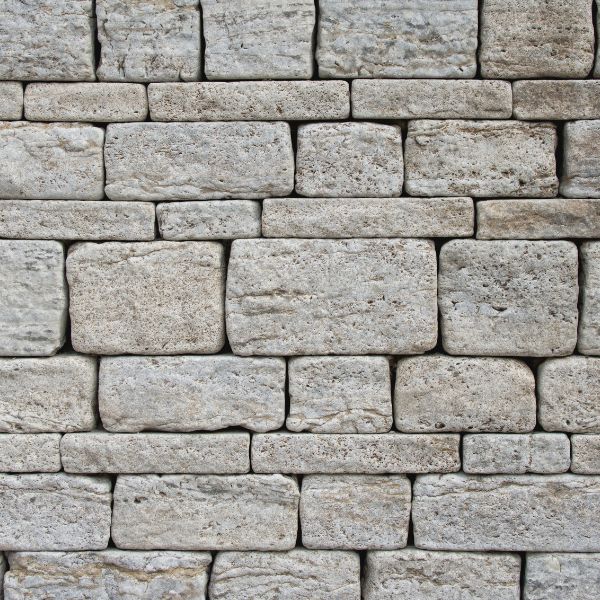
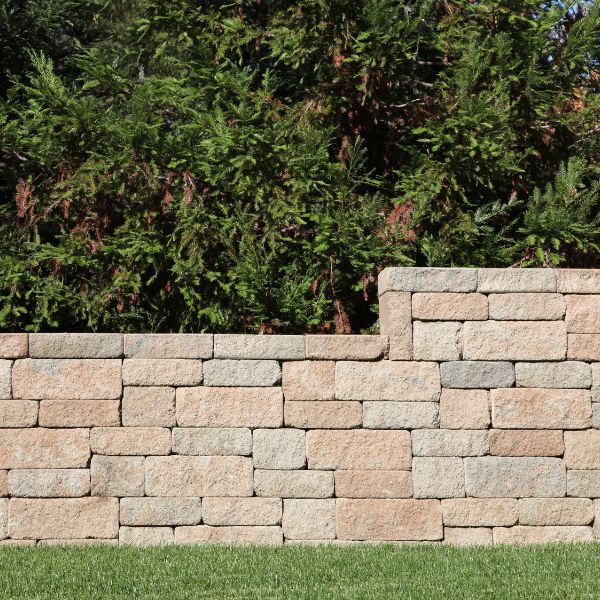
Leading companies offer creative design solutions.
Retaining walls also add property value. A professionally built wall signals durability, aesthetic care, and reduced maintenance needs, making homes more appealing to potential buyers in Portland's competitive housing market.
Portland landscapes require unique approaches. The best retaining wall companies tailor designs to fit steep hillsides, narrow spaces, or large properties, ensuring each project is custom-built for maximum effectiveness.
Sustainable practices are becoming common.
Compliance with local building codes is a must. Professional companies ensure walls meet regulatory standards, providing both safety and peace of mind for homeowners investing in their properties.
Experienced companies combine technical knowledge with artistry. They create walls that are as visually appealing as they are strong, seamlessly blending functionality with aesthetic charm in every design.
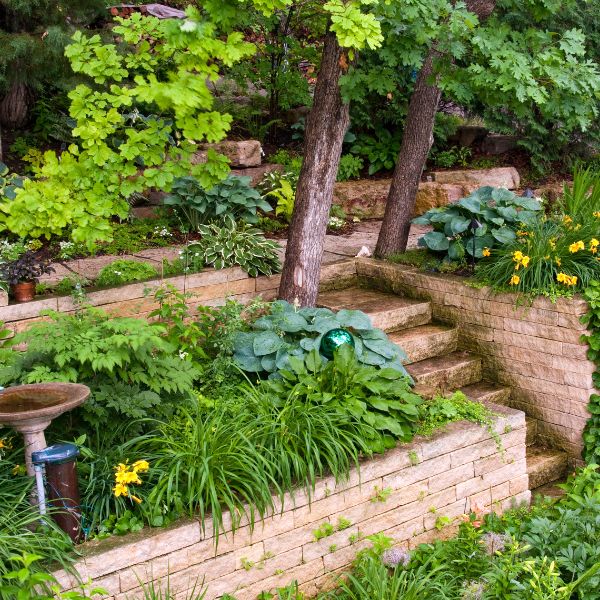
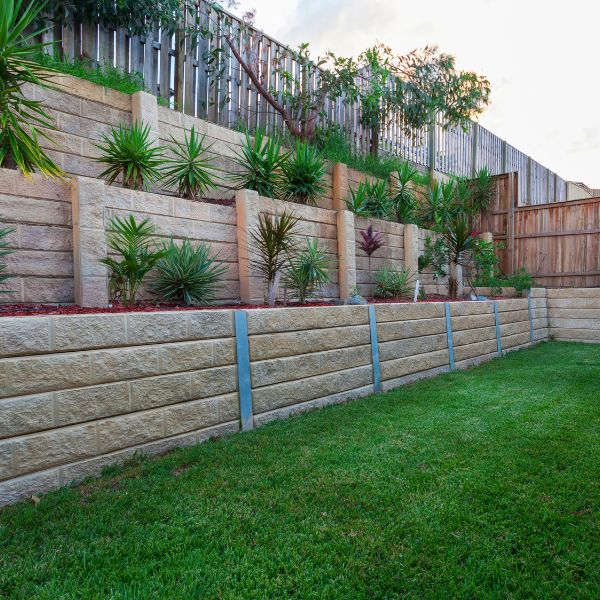
Retaining walls help define outdoor layouts. Companies design walls that organize landscapes, separating functional zones such as patios, gardens, or pathways while maintaining a cohesive visual appeal.
Top retaining wall companies focus on durability.
Retaining walls can be customized to complement a property's style. Local Companies offer rustic stone for timeless character, sleek concrete for modern appeal, or timber for a warm, natural look.
EnvironmentLong-term maintenance guidance is often provided.
By investing in a trusted company, homeowners reduce the risk of future repair costs. Quality construction ensures retaining walls remain reliable and functional without the need for frequent adjustments.
Monaghan's Landscaping has earned recognition as the Best Retaining Wall Company Portland Oregon, delivering projects that combine strength, creativity, and precision, ensuring every retaining wall enhances landscapes with beauty and long-lasting durability.
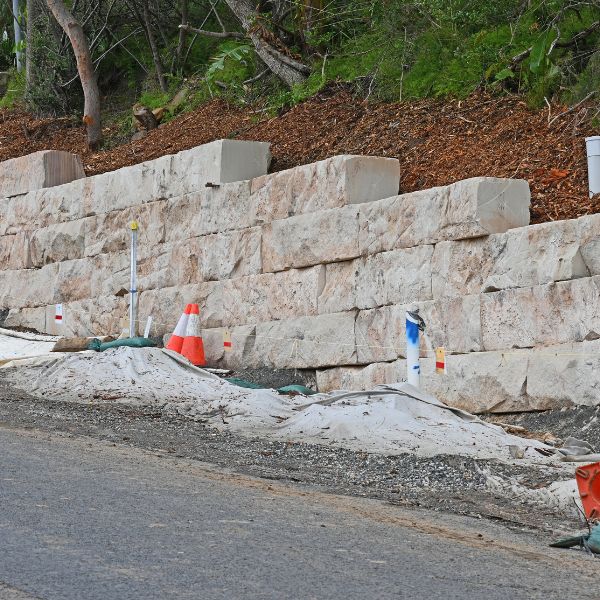
Hardscape is difficult landscape products in the built atmosphere frameworks that are integrated into a landscape. This can consist of paved locations, driveways, preserving walls, sleeper walls, stairs, pathways, and any type of various other landscaping composed of hard wearing materials such as wood, stone, and concrete, as opposed to softscape, the gardening components of a landscape. Difficult landscaping includes tasks that cover the entirety of the backyard which are needed prior to soft landscape design attributes enter play. Difficult landscaping changes the foundation of the lawn, the "bricks and mortar" so to speak; only when this is completed can the landscaping company start to focus on the softscape functions of the backyard, such as grass, flower growings, trees and shrubs. One crucial feature of tough landscape design pertains to the absorption of water –-- something that is of great relevance given the environment. Tough landscaping makes sure that worrying about water after heavy rain or snowfall is not an issue. The ideal water absorption and irrigation system mounted through hard landscaping, combined with difficult products that securely move water away from the property can guarantee that soil motion is never ever a trouble and that the lawn remains a drier, pleasurable space, as opposed to a damp and muddy bog. There are soft landscaping alternatives that can help to achieve this, however the mass of this is accomplished with tough landscaping. From a metropolitan planning perspective, hardscapes can include large attributes, such as paved roadways, driveways or water fountains, and even little swimming pools or ponds that do not exceed a certain safe height. Many water functions are hardscapes because they need an obstacle to preserve the water, as opposed to letting it drain pipes into the bordering soil. Hardscaping enables the erection of synthetic landscaping features that would certainly or else be difficult due to dirt disintegration, consisting of some that compensate for big amounts of human web traffic that would trigger wear on bare planet or turf. For example, sheer upright functions are possible. Without nearby bare dirt, or all-natural drain networks, swales or culverts, hardscape with a resistant surface requires man-made approaches of drainage or surface area overflow to carry off the water that would usually be soaked up into the ground as groundwater and prevent premature wear to itself. Lack of capability, or badly intended or implemented drain or grading of the surface area can create troubles after extreme storms or heavy prolonged durations of rainfall loss, such as flooding, washout, mud flows, sink openings, sped up disintegration, damp rot to timber elements, drowning of plants trees and shrubs, and also structure problems to a nearby home such as splitting the structure, basement flooding as a result of water infiltration, and parasite seepage, such as ants and various other pests getting in with damaged locations.
.In American English, pathway is a composite or umbrella term for all crafted surfaces or structures which sustain the use of trails. The New Oxford American Thesaurus additionally specifies a walkway as "a passage or path for strolling along, esp. an elevated passageway linking various areas of a building or a vast path in a park or garden." Words is used to explain a footpath in New Zealand, where "walkways differ immensely in nature, from short urban walks, to modest coastal areas, to challenging vagrants [walks] in the high nation [mountains]. Similarly in St. John's, Newfoundland, Canada, the "Grand Rout" is an integrated pathway system that has over 160 kilometers (99 mi) of sidewalks, which link every major park, river, pond, and green room in six municipalities. In Toronto, Ontario, Canada, the SkyWalk is a roughly 500-metre (1,600 feet) confined and raised walkway (skyway) linking Union Terminal to the CN Tower and the Rogers Centre (SkyDome). It becomes part of the course network. The SkyWalk passes above the York Road 'subway' and the Simcoe Road Passage. It opened up in 1989 and it was built to decrease the requirement for added parking spaces near the Skydome stadium by giving a straight transportation web link to the subway and GO trains. PATH is a 29-kilometre (18 mi) network of pedestrian passages beneath the workplace towers of Downtown Toronto, and the largest below ground mall on the planet. In British English, a sidewalk a lot more especially refers to a covered or elevated passage in a building, usually connecting separate buildings.
.A paver is a paving rock, sett, ceramic tile, block or brick-like piece of concrete generally used as outside flooring. They are generally put on top of a foundation which is made from layers of compressed rock and sand. The pavers are positioned in the preferred pattern and the space in between pavers that is produced with the incorporated spacer bar is after that loaded with concrete sand or a polymeric sand. No real adhesive or maintaining method is used besides the weight of the paver itself except edging. Pavers can be made use of to make roadways, driveways, outdoor patios, pathways and other outdoor platforms. In a factory, concrete pavers are made with a mixture of sand, stone, cement and iron oxide pigments in a mold and after that treated before product packaging.
.Yes, we consider drainage as part of our hardscaping design to ensure water is managed correctly and does not cause damage to your property. We can install solutions like French drains, channel drains, or permeable pavers to address any drainage concerns.
While we don't provide regular lawn care, we can advise you on how to maintain your hardscaping features and recommend sealing, cleaning, and minor repair services.
Hardscaping refers to the non-living elements of a landscape, including patios, walkways, retaining walls, outdoor kitchens, fire pits, and other features made from stone, brick, concrete, or wood. It contrasts with softscaping, which involves plants, flowers, and lawns.
Permits may be required for specific hardscaping projects, especially for larger structures like retaining walls or outdoor kitchens. We can help you determine whether a permit is necessary and assist with the application process.